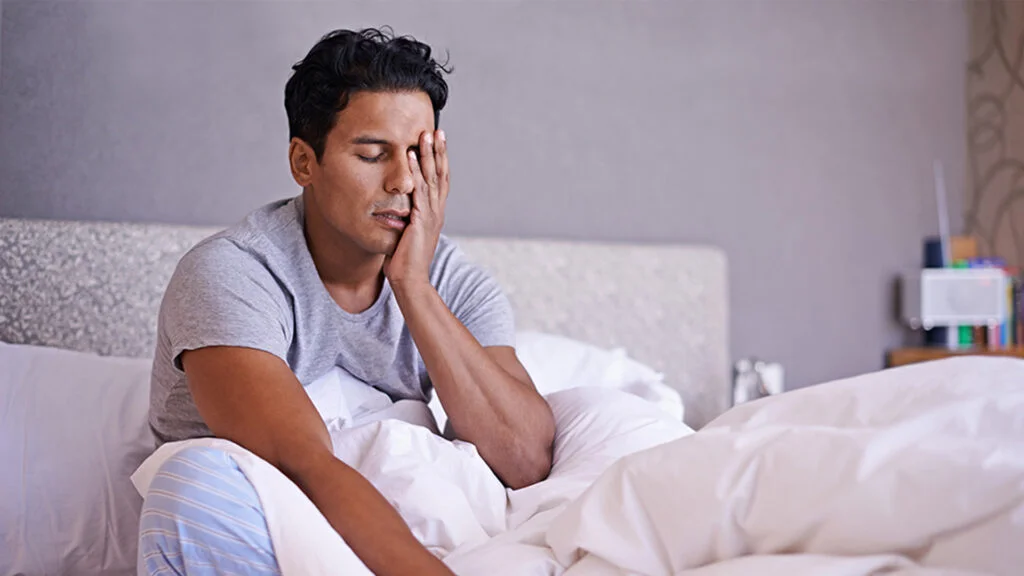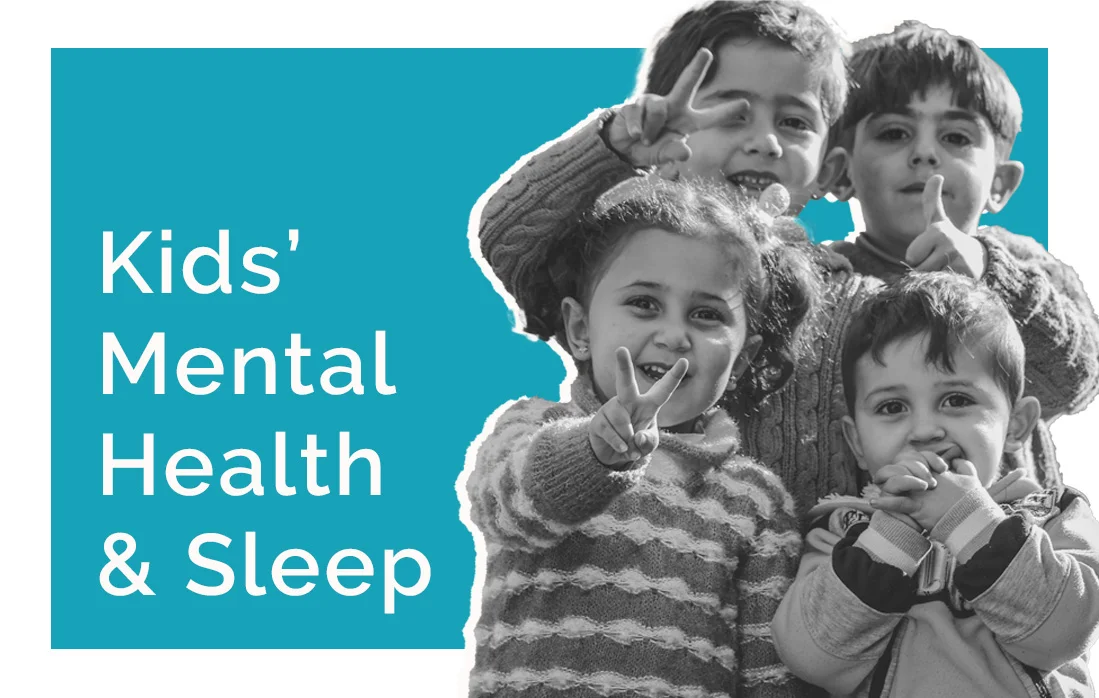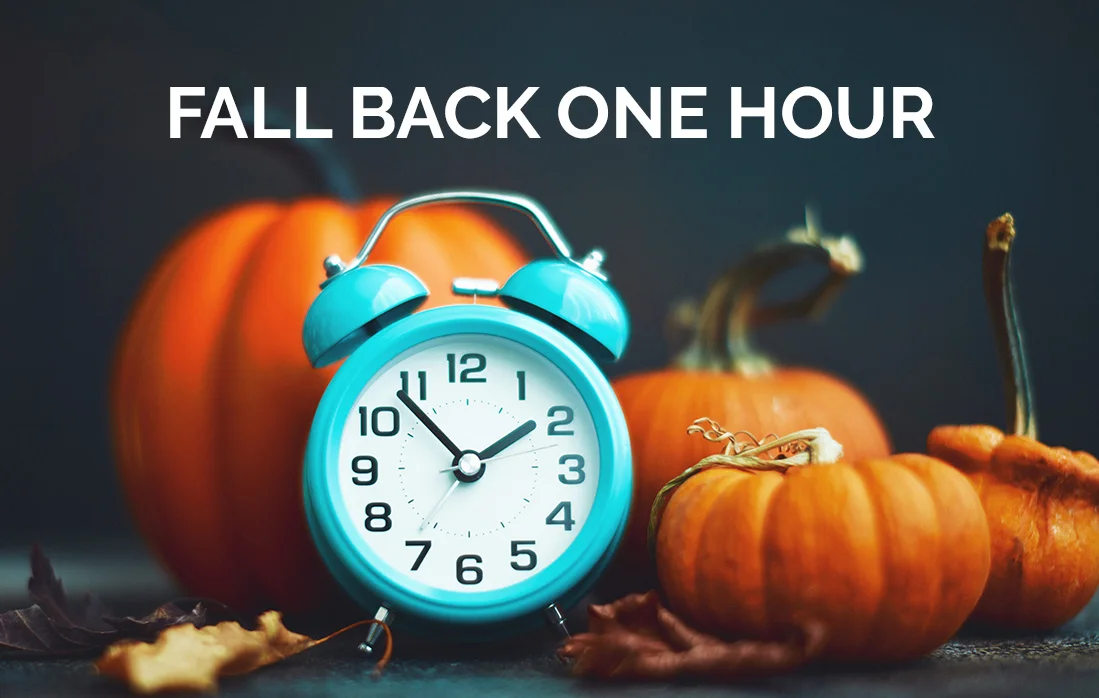
If you’ve ever felt a barrage of sadness or anxiety when you’re laying down to go to sleep, you’re not alone. “Nighttime depression” or the sensation of experiencing symptoms of depression late at night is a well documented phenomenon. Recently, The New York Times interviewed an expert and broke down what nighttime depression is and why nighttime can cause people to feel more depressed. (1)
On top of that, it’s pretty common knowledge in this day and age that sleep and your mental health are deeply connected, having a bidirectional effect on one another. This means that mental health can affect how much you’re sleeping, and how much you’re sleeping can have an impact on your mental health.
It’s important to note that The New York Times clarifies that nighttime depression is a term that characterizes the feelings of low mood or sadness that people might experience at night, and not a diagnosis of a medical condition. (1)
If you’re curious about nighttime depression and how depression can impact your sleep (and vice versa) read on.
What Is Nighttime Depression?
According to The New York Times’ interview with Dr. Theresa Miskimen Rivera, a clinical professor of psychiatry at Rutgers University and president-elect of the American Psychiatric Association, nighttime depression is characterized by “a sense of sadness” that can increase once the sun goes down. (1)
Dr. Rivera goes on to add that nighttime depression can feel like “that feeling of: there’s no joy, my life is so blah.” (1).
How Is Nighttime Depression Different From Depression?
“Nighttime depression” is not a form of depression like postpartum depression or seasonal affective disorder, but according to The New York Times, it is instead a “colloquial term for depressive symptoms that either appear or worsen late at night.” (1)
Depression, or major depressive disorder, can come in many different forms, and can depend on specific circumstances that influence what type of depression you might experience. Broadly, the National Institute of Mental Health (NIMH) defines depression as “a common but serious mood disorder. It causes severe symptoms that affect how a person feels, thinks, and handles daily activities, such as sleeping, eating, or working.” (2)
According to the NIMH, types of depression can include persistent depressive disorder, perinatal depression, seasonal affective disorder, or depression with symptoms of psychosis. (2)
Symptoms of depression can look different for each person, but some general symptoms can include a persistent sad, anxious, or empty mood, feelings of hopelessness, feelings of irritability, fatigue or a lack of energy, loss of interest in hobbies or activities, difficulty sleeping or oversleeping, thoughts of death or suicide, suicide attempts. (2)
This is by no means an exhaustive list, and if you or a loved one is experiencing these symptoms then you should reach out to a doctor or mental health provider. Additionally, you can call 988, the national suicide hotline if you need help.
How Does Depression Impact Sleep?
Depression and sleep have a bidirectional relationship, which means that how you’re sleeping affects symptoms of depression and your symptoms of depression can impact how you are sleeping. Common symptoms of depression that impact sleep are an inability to sleep, oversleeping, or waking up too early in the morning. (2)
The sleep-depression loop occurs when sleep and depression issues amplify one another. Kristie Tse, a psychotherapist who treats depression, told Sleepopolis that by addressing both symptoms of depression and insomnia, she saw improvement to her client’s mood and overall functioning.
A 2021 meta-analysis that investigated whether or not improved sleep quality impacts mental health found that “improving sleep was associated with better mental health regardless of the severity of mental health difficulty (i.e., clinical vs. non-clinical) or the presence of comorbid health conditions.” (3)
If you are experiencing insomnia or other problems with your sleep, you should reach out to your doctor or mental health provider to discuss next steps.

A Complete Guide to Kids’ Mental Health and Sleep

”These Statistics Are Alarming:” Expert’s Warning About Gen Alpha’s Sleep Struggles

Beating Postpartum Insomnia: Our Expert-Backed Tips

Can the End of Daylight Saving Time Worsen Seasonal Depression?
Sources
- Caron, Christina. Is nighttime depression really a thing?. The New York Times. October 4, 2024. https://www.nytimes.com/2024/10/04/well/mind/depression-at-night.html
- Depression. National Institute of Mental Health. March 2024. https://www.nimh.nih.gov/health/topics/depression
- Scott, Alexander J., Webb, Thomas L., Martyn-St James, Marissa, et al. Improving sleep quality leads to better mental health: A meta-analysis of randomised controlled trials. Sleep Medicine Reviews. 2021. DOI: 10.1016/j.smrv.2021.101556


























